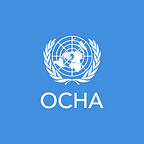Madagascar drought creates “overwhelming needs”
When the UN’s Deputy Humanitarian Chief, Kyung-wha Kang visited Madagascar to raise awareness of the effects of the country’s crippling drought, she did not expect to see such staggering levels of humanitarian suffering.
For over a year, Madagascar has been hard-hit by drought linked to one of the most powerful El Niño phenomena on record. This year the harvest has suffered 80 per cent losses and 665,000 people across the country cannot access enough food — the highest number in a decade. Young children and pregnant women are most vulnerable to hunger and malnutrition, according to the UN.
Madagascar is just one of many countries in the Southern Africa region experiencing acute suffering. Southern Africa is facing its worst drought in 35 years, with nearly 40 million people food insecure. Lesotho, Malawi, Swaziland, Zimbabwe, Namibia and Mozambique are most severely affected.
Worst yet to come
Most worrying, we have not yet reached the peak of the crisis: hunger levels are expected to spike at the end of 2016.
“The scale of the drought has devastated the coping capacity of communities who are already barely surviving on subsistence farming,” says Kang. “Hard-won development gains hang in the balance.”
Filling the gap in Grand Sud
The drought has hit hardest in the already arid region of Grand Sud. Home to 1.8 million people, infant mortality there is now 47 per cent higher here than the national average.
“In this area, chronic poverty resulting from decades of marginalization and lack of development investment has left humanitarian assistance to fill the gap,” says Kang.
During her visit, the Deputy Humanitarian Chief helped distribute World Food Programme aid which had been funded through the Central Emergency Response Fund (CERF).
Sharing a puddle “jarring”
On the trip to the project site, Kang witnessed the desperate lengths to which people are forced to go to access water. “Driving along bumpy dirt roads, our convoy stopped and waited for a farmer carting water home from a small muddy puddle. The same puddle was also being used by cattle and other livestock.”
“We then drove through the same puddle to get to our project site, and the farmer and his family then used the water for drinking without any further treatment. That was one of the most jarring experiences.”
Sisters in solidarity
In one village sisters at a local Catholic association wake at 3am each day to cook rice and maize for residents. But now they are struggling to procure enough food as the number lining up for it has drastically risen.
This week the Southern African Development Community launched a request for US$2.7 billion for 10 member states that have asked for international support in the region. Some $70 million of this will target Madagascar. To complement this appeal, UN and NGO partners have also prepared a regional plan of action, seeking $1.2 billion to support 12 million people in the region.
“I was very encouraged by the commitment of donors to help the people worst affected by this humanitarian crisis,” says Kang. “Only with the generosity of donors, will we beat this crisis.”
